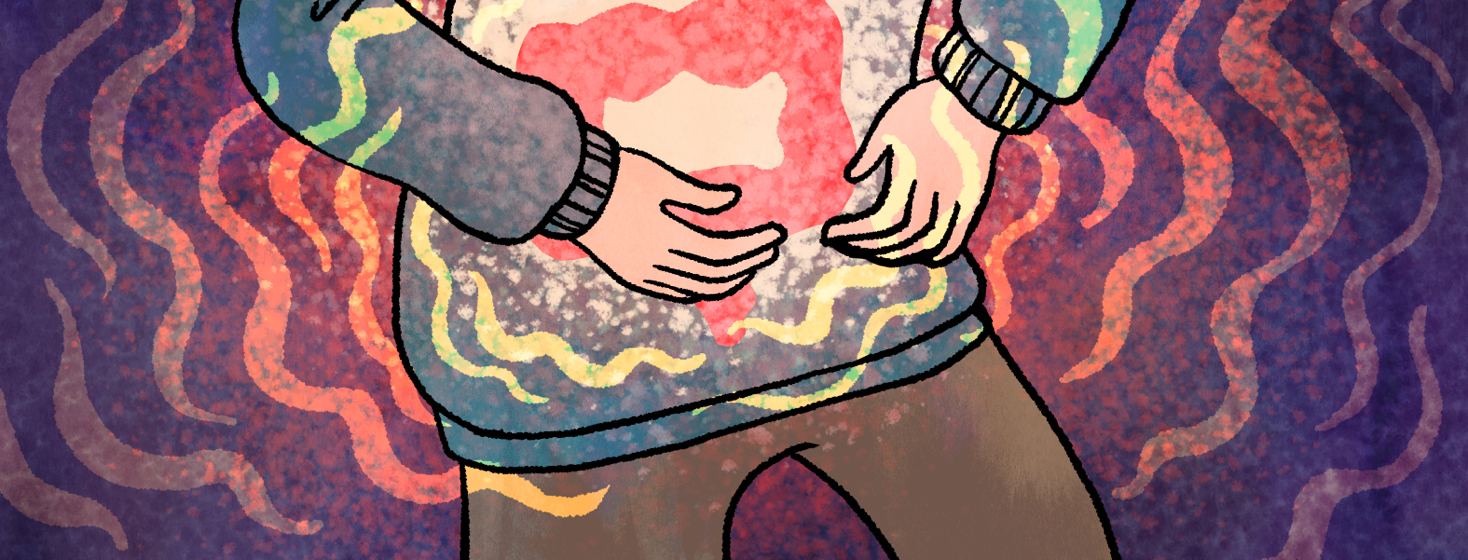How Can a Gastroenterologist Treat People with Cystic Fibrosis?
When most people think of cystic fibrosis (CF), they think of difficulty breathing and clogged lungs. And they are not wrong. People with CF usually have problems with mucus buildup in their lungs and airways. But what many people do not know is that gastrointestinal (GI) problems are the second most common symptom of CF.
Gastroenterologists are doctors who specialize in GI problems. A gastroenterologist can help you find out if your issues are caused by cystic fibrosis or something else. They can also help you decide what solutions are right for you.
Why does CF cause GI issues?
GI symptoms for a person with cystic fibrosis are caused by the same genetic change in the cystic fibrosis transmembrane conductance regulator (CFTR) gene. This genetic change is what causes mucus buildup in the lungs.1
Usually, the CFTR gene provides the tools for making the CFTR protein. This protein helps move chloride, an element that makes up salt, to the surface of a cell. Water is attracted to the cell surface by the chloride. The water hydrates and softens the cell membrane. Without CFTR, a sticky mucus forms.1
In the lungs, the mucus builds up and prevents air from flowing easily in and out. In the GI tract, the mucus causes a similar problem.
You can think of your GI tract as a long tube. It starts in your mouth and runs through your esophagus, stomach, small intestine, and large intestine. It ends in the anus. The mucus that clogs the lungs also prevents normal movement through the GI tract.1
What GI symptoms are linked to CF?
GI problems are a common part of living with CF. Issues may include:1
- Constipation
- A blocked intestine
- Chronic acid reflux
- Gallstones
- Extra bacterial growth in your intestine
Common symptoms for these issues include:2
- Having lumpy or hard stools
- Straining to have bowel movements
- Crampy or intense abdominal pain
- Nausea
- Bloating
- Always feeling full
- Diarrhea
- Sudden weight loss
- Fewer bowel movements
- Vomiting
- Heartburn or chest pain
How gastroenterologists help people with cystic fibrosis
A gastroenterologist is a doctor who treats illnesses related to the GI tract. For instance, they can help you find out why you always feel painfully bloated. Or, they can sort out if frequent intense pain in your side is from a blocked intestine. If you often have diarrhea, they can suggest medicines to help.2
Gastroenterologists also treat people with similar GI symptoms, such as Crohn’s disease or celiac disease. They can tell if your symptoms are the result of CF or if you have an entirely different illness.2
Once they understand your symptoms, a gastroenterologist can recommend treatments or drugs to help. Ideally, your issues can be managed by drinking more water, changing your diet, or taking drugs like laxatives. However, surgery might be the best option for some people with CF.2
What GI symptoms require surgery in people with CF?
A gastroenterologist can help you decide if your symptoms are serious enough to consider surgery. The most common reason for GI surgery for people with CF is distal intestinal obstruction syndrome (DIOS). With DIOS, the intestine is completely blocked by hardened mucus and your body’s waste material. The surgery involves removing the blocked section of the intestine.3
Gallstones are also common with CF, so a cholecystectomy could be necessary. This is surgery to remove the gallbladder.3
For severe and chronic acid reflux, a fundoplication could be the best solution. During this procedure, a surgeon changes how the tube of the GI tract connects from the stomach to the esophagus. This prevents acid from moving up the GI tract.3
If you have questions or concerns about any GI symptoms you are experiencing, talk to your doctor. They can refer you to a gastroenterologist who has experience treating people with cystic fibrosis.

Join the conversation